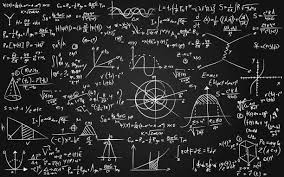The following has been generated by a large language model:
Control theory is a branch of engineering that deals with the design of systems that can control the behavior of other systems. Self-driving farm equipment is a type of system that can be controlled using control theory.
The control system for a self-driving farm equipment typically consists of the following components:
- Sensors: Sensors are used to collect data about the environment around the equipment. This data can include things like the position of the equipment, the speed of the equipment, and the presence of obstacles.
- Actuators: Actuators are used to control the movement of the equipment. This can include things like the steering wheel, the throttle, and the brakes.
- Controller: The controller is the brains of the system. It uses the data from the sensors to calculate the optimal movements for the actuators.
The controller for a self-driving farm equipment can be implemented using a variety of methods. One common approach is to use a rule-based controller. Rule-based controllers are simple to implement, but they can be inflexible and difficult to update. Another common approach is to use a machine learning controller. Machine learning controllers are more complex to implement, but they can be more flexible and can adapt to changes in the environment.
The control system for a self-driving farm equipment must be able to handle a variety of challenges. These challenges include:
- Varying terrain: Farmland can be uneven and can have obstacles like rocks, trees, and ditches. The control system must be able to handle these challenges without damaging the equipment or causing accidents.
- Weather conditions: Farmland can be subject to a variety of weather conditions, including rain, snow, and fog. The control system must be able to operate safely in these conditions.
- Animals: Farmland can be home to a variety of animals, including livestock and wildlife. The control system must be able to avoid collisions with these animals.
The development of control systems for self-driving farm equipment is an active area of research. As the technology continues to develop, self-driving farm equipment will become more common and will play an increasingly important role in agriculture.
Here are some of the benefits of using control theory for self-driving farm equipment:
- Increased efficiency: Self-driving farm equipment can operate 24/7, which can help farmers to increase their productivity.
- Reduced labor costs: Self-driving farm equipment can help farmers to reduce their labor costs by eliminating the need for human drivers.
- Improved safety: Self-driving farm equipment can help to improve safety by reducing the risk of accidents caused by human error.
- Environmental benefits: Self-driving farm equipment can help to reduce environmental impact by reducing fuel consumption and emissions.
Overall, control theory is a powerful tool that can be used to design safe and efficient self-driving farm equipment. As the technology continues to develop, self-driving farm equipment will become a more common sight on farms around the world.

